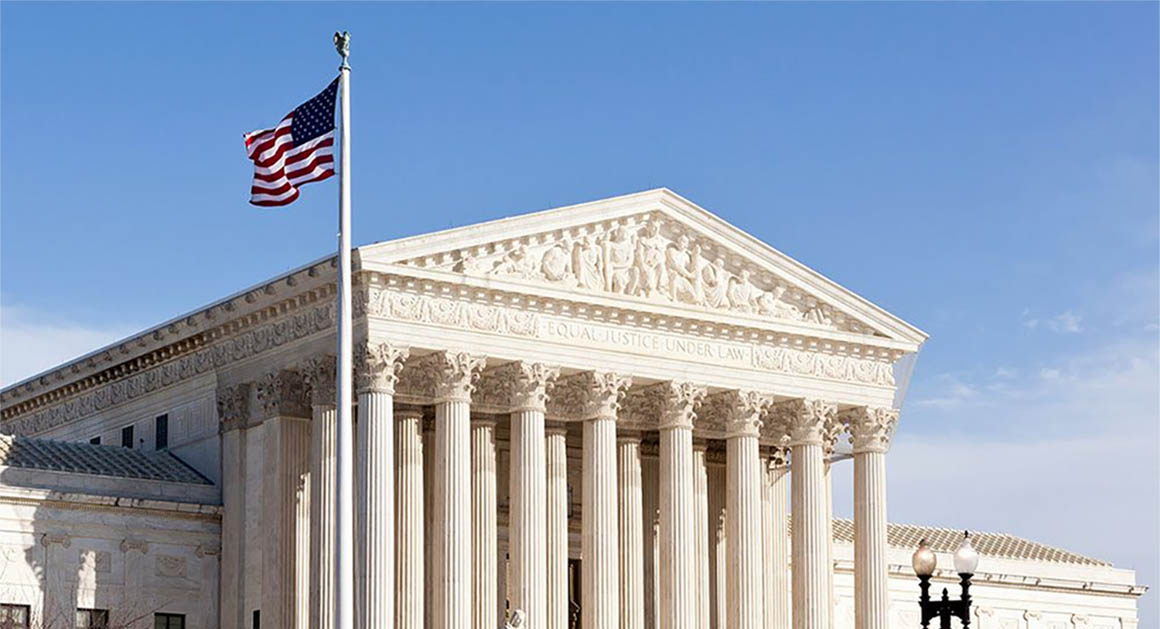All eyes are on Justice Kennedy this morning as the Supreme Court will grapple with the clash of the constitutionally protected right to religious liberty and expression and the constitutionally protected individual rights of same sex couples.
In 2012, a Colorado couple walked into the Masterpiece Cakeshop attempting to purchase a cake for their wedding. The bakery’s owner, Jack Philips who is a religious Christian refused service, saying that his religious beliefs would not allow him to sell a cake designated for a same sex wedding. The store owner’s decision kicked off a multi-year legal battle that is center-stage before the Supreme Court today.
Whether the cake was or could be bought elsewhere did not matter and the same sex couple, Charlie Craig and Dave Mullins, won the first round of legal wrangling, as a Colorado court held that Masterpiece Cakeshop violated a state law that bars businesses from discriminating based on sexual orientation. Masterpiece Cakeshop was ordered to serve same sex customers, change its business policies and offer employees training regarding discrimination in public accommodations.
The store owners, however, declined to comply with the order as they saw it as a direct infringement on their religious beliefs and they were compelled to close down the wedding cake service before appealing the decision.
The Colorado Supreme Court later upheld the earlier decision, saying the act of cake making could neither be an expression of free speech nor an exercise in religion. The court did not accept that religion guided the Masterpiece Cakeshop ownership in their daily interface with society. The court saw it as a commercial transaction. Masterpiece Cakeshop then petitioned the U.S. Supreme Court for review of the case.
A final legal resolution to this case is looming, as the U.S. Supreme Court will hear arguments today in Masterpiece Cakeshop v. Colorado Civil Rights Commission. The case will determine whether “creative businesses” can legally refuse to provide services to same sex couples due to First Amendment rights of free speech and the constitutionally-protected right of free exercise of religion. This case addresses the collision of religious liberty and individual rights.
How both sides are approaching legal arguments
In court filings, Masterpiece Cakeshop has argued that Colorado’s anti-discrimination law is too expansive, claiming that same sex couples can easily find a bakeshop willing to provide service. The Masterpiece Cakeshop attorneys have also urged the Supreme Court to review Colorado’s anti-discrimination law under “strict scrutiny” — a three-part standard that is applied to laws or policies to determine constitutionality. The three part test is as follows:
- Is a law justified by a compelling governmental interest?
- Is the law narrowly tailored to meet that interest?
- Is the law the least restrictive means for achieving that interest?
This standard represents the most stringent form of legal review used by American courts and is commonly employed when constitutional rights are argued to have been infringed.
Statistics show that two in three laws subjected to strict scrutiny are not upheld — though this number rises considerably with laws dealing with religious liberty issues.
The U.S. Department of Justice, has filed a brief in support of Masterpiece Cakeshop, while the American Civil Liberties Union (ACLU) is supporting the opposing side. The state and the ACLU have argued that the law is tailored at the conduct of a business rather than speech or religion, and that no “reasonable” person would construe providing a cake in a business context as an endorsement of same sex marriage.
How the court addresses this direct clash between persons who seek to compel other citizens with deeply held and constitutionally protected religious beliefs to bend to the individual constitutional rights of others will likely have overriding impact on the manner citizens interact with each other in commercial settings.
The decision is expected to be a close vote on the Supreme Court. Obergefell v Hodges, the landmark Supreme Court decision that established the legal right to same sex marriage, was a 5-4 decision, with Justice Anthony Kennedy providing the decisive swing vote.
It’s likely that Kennedy, who has in the past been a supporter of same sex rights and who authored the majority opinion in Obergefell v Hodges, will once again be the swing vote. The comments and questioning by Justice Kennedy in today ‘s arguments will be closely watched.
We welcome your legal questions for topically relevant articles in the future. Feel free to compose a question – it may be addressed in future articles. Email Question
Free Case Evaluation
Fill Out The Form Below To Find Out If You Have A Case.
Thank you for contacting us. One of our colleagues will get back to you shortly.



